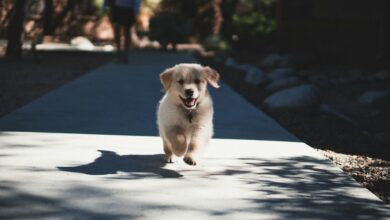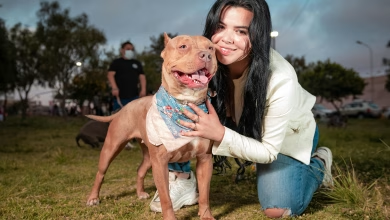
Mastering the Art of Responsible Dog Waste Management
Dog ownership brings joy and companionship, but with it comes the responsibility of managing dog waste. In this comprehensive guide, we’ll delve into the details of responsible dog waste management, covering everything from proper pickup techniques to eco-friendly disposal options and even recycling.
1. How to Pick Up Dog Waste: Mastering the Basics
Choosing the Right Tools:
The first step in responsible dog waste management is selecting the appropriate tools. Opt for sturdy, biodegradable waste bags or consider an eco-friendly pooper scooper. These tools ensure hygienic waste pickup while minimizing environmental impact.
Effective Techniques:
When picking up dog waste, approach the task with care. Place the bag over your hand, grasp the waste, and invert the bag. Tie it securely, ensuring a seal. Alternatively, utilize a pooper scooper for hands-free collection, promoting a more sanitary experience.
Adapting to Different Conditions:
Whether it’s raining, snowing, or dealing with waste from different-sized dogs, adjusting your approach is key. In inclement weather, carry an umbrella for shelter or choose thicker bags to prevent leakage. Adjusting to the size of the dog ensures proper coverage and containment.
2. How to Dispose of Dog Waste: Environmentally Friendly Options
Trash Disposal:
Disposing of dog waste in regular trash bins is common, but it requires careful handling. Double-bagging waste can contain odors, and choosing biodegradable bags aids in decomposition. Ensure waste reaches designated trash bins and doesn’t end up in recycling or compost bins.
Dumpster Disposal:
For larger quantities or community waste stations, dumpster disposal is an option. Follow community guidelines, and never dispose of dog waste in recycling or compost bins meant for other materials.
Avoiding Drains and Waterways:
To prevent water pollution, avoid disposing of dog waste in drains or waterways. Bacteria and parasites from dog waste can harm aquatic ecosystems. Opt for proper disposal methods to safeguard water quality.
3. How to Compost Dog Waste: Turning Waste into Fertilizer
Composting Basics:
Composting dog waste is an eco-friendly alternative. Create a dedicated composting area away from edible plants. Mix dog waste with a compostable material like sawdust or straw, turning it regularly to aid decomposition.
Composting in an Apartment:
Even in small spaces, apartment dwellers can compost dog waste. Utilize designated composting bins or consider specialized composting systems designed for urban living. Follow guidelines to ensure safe composting in confined areas.
Ensuring Safety:
While composting dog waste, prioritize safety. Avoid using compost on edible plants and consult local regulations. The composting process should reach high temperatures to eliminate harmful pathogens.
4. Training Your Dog for Responsible Waste Habits
Litter Box Training:
Training dogs to use a litter box is practical for indoor living situations. Choose an appropriately sized box, fill it with specialized litter, and encourage your dog to use it. Consistent positive reinforcement reinforces this behavior.
Doggy Door Training:
Facilitate outdoor relief with doggy door training. Install a doggy door at the appropriate height and encourage your dog to use it. Consistency and praise are crucial for successful doggy door training.
Consistent Commands:
Establish consistent commands for waste elimination. Reinforce positive behavior with treats and praise. Consistency and patience are key to ingraining responsible waste habits in your dog.
5. How to Clean Up Dog Poop from Different Surfaces
Carpet Cleanup:
Accidents happen, and cleaning dog waste from carpets requires swift action. Blot the waste, treat stains with an enzymatic cleaner, and use a carpet cleaner. Ventilate the area to eliminate odors.
Dog Park Cleanup:
Cleaning up in a dog park with multiple dogs requires vigilance. Carry extra waste bags, be observant, and promptly clean up after your dog to maintain a clean environment for all park-goers.
Beach Cleanup:
Enjoying the beach with your dog involves special considerations. Bring extra bags, use designated waste stations, and bury waste in the sand if no other disposal options are available. Respect beach regulations for a pleasant experience for all beachgoers.
6. Preventing Parasite Spread and Environmental Contamination
Understanding Parasite Risks:
Improper dog waste disposal can spread parasites. Understand the risks associated with parasite transmission from dog waste, including common parasites like roundworms and giardia.
Educating Others:
Promote responsible waste disposal practices within your community. Educate neighbors on the risks of improper disposal and encourage them to follow guidelines for a healthier environment.
Children’s Safety:
Protect children from parasite transmission by teaching them proper hand hygiene after playing with pets. Emphasize the importance of avoiding contact with dog waste and maintaining a clean play environment.
7. Recycling Dog Waste: Transforming Waste into a Resource
Eco-Friendly Products:
Choose eco-friendly dog waste bags made from biodegradable materials. These bags decompose naturally, minimizing the environmental impact of waste disposal.
Fertilizer Production:
Recycling dog waste into fertilizer is an innovative approach. Specialized systems break down waste, converting it into nutrient-rich fertilizer suitable for non-edible plants.
Community Initiatives:
Participate in local initiatives promoting sustainable waste management. Some communities have programs converting dog waste into biogas for energy production. Explore available options to contribute to environmental sustainability.
8. DIY: Making Your Own Eco-Friendly Dog Waste Bags
Materials Needed:
Crafting your own eco-friendly dog waste bags is cost-effective and reduces reliance on commercial options. Gather materials such as biodegradable plastic, cornstarch, and recycled paper for a sustainable alternative.
Step-by-Step Guide:
Follow a step-by-step guide to creating your own eco-friendly dog waste bags. Cut and assemble the materials, ensuring proper sealing and strength for effective waste containment.
Cost-Effective Solutions:
Homemade eco-friendly dog waste bags offer a budget-friendly alternative to commercial options. Reduce your ecological footprint while managing dog waste responsibly.
9. Using Enzymes to Treat Dog Waste: Safe and Effective Solutions
Enzyme Benefits:
Enzymes offer a natural solution for breaking down dog waste and reducing odors. Choose enzyme-based products that are safe for pets and the environment.
Safe Enzyme Products:
Explore the market for enzyme products specifically designed for treating dog waste. These products accelerate decomposition, minimizing the environmental impact of waste.
Application Techniques:
Apply enzyme products according to guidelines. Sprays and powders are common forms, and proper application ensures effective waste breakdown without harm to the environment or your pet.
10. Preventing Habitual Spot Fouling: Training Your Dog to Avoid Specific Areas
Understanding Habitual Pooping:
Dogs may develop habits of pooping in specific spots. Recognize the reasons behind habitual pooping, such as marking territory or seeking familiar scents.
Positive Reinforcement:
Deter unwanted habits through positive reinforcement. Reward your dog for eliminating waste in designated areas and discourage habitual spot fouling with gentle redirection.
Consistency and Patience:
Building healthy habits takes time. Remain consistent with positive reinforcement and redirection. With patience, your dog can learn to avoid habitual spot fouling.
Dog Waste Management
Responsible dog waste management is not only a legal obligation but a moral responsibility. By mastering the art of proper pickup, disposal, and even recycling, dog owners can contribute to a cleaner environment and a healthier community. Implementing these practices ensures a positive relationship between pet owners and their furry companions and sets an example for others to follow. Remember, responsible dog waste management is a small effort with significant positive impacts on our surroundings.









This is so well-researched. I’m impressed.